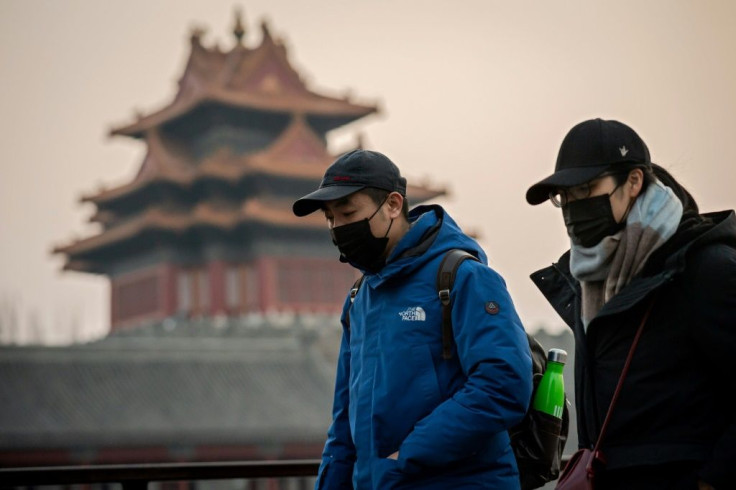Coronavirus Update: Catholic Church Responds To Outbreak By Sending Masks To China

KEY POINTS
- The Vatican has donated 700,000 face masks to China
- The masks were paid for by the Vatican and Chinese Christian communities in Italy
- China slams the Trump administration for doing nothing to help fight the coronavirus
The toll from the raging Novel coronavirus (2019-nCoV) outbreak tearing through China and infecting 23 other countries and territories stood at 426 deaths as of Tuesday morning (China time) with 20,622 confirmed cases. All the deaths, except one, occurred in China. The lone death outside China was that of a man from Wuhan who died from the disease in a hospital in the Philippines.
Apart from the spreading global panic, one unwanted offshoot of this outbreak -- which some health experts warn now has the makings of a global pandemic -- is a peristent shortage of protective face masks that can protect wearers from contracting the contagious virus. Face mask shortages are plaguing China, which is appealing for outside assistance to quell this problem, and other Asian countries hit by the virus such as Hong Kong, Vietnam and the Philippines.
In answer to China's appeal, the Roman Catholic Church has sent more than 700,000 face masks to China.
"The masks are destined to the provinces of Hubei, Zhejiang and Fujian," said a statement from the Vatican in Rome. "It is a joint initiative of the Office of Papal Charities and the Chinese Church in Italy, in collaboration with the Vatican pharmacy."
A Roman Catholic priest, Father Vincenzo Han Duo, vice rector of Rome's Pontifical Urbanian College, said the donation was made possible with the help of Cardinal Konrad Krajewski, the papal almoner, or the priest in charge of the official distribution of alms to the poor.
The masks were paid for by the Vatican and Chinese Christian communities in Italy. Airline companies, including China Southern Airlines, provided free shipment.
"I hope the supplies could reach where they are needed as soon as possible, so that people who are suffering the disease could feel the concern from the Holy See," said Fr. Han. "The whole world is standing together to fight the virus."
During his Sunday Angelus address, Pope Francis expressed condolences to the victims of the virus and the Church's support for efforts to fight the virus' spread.
"I wish to be close to and pray for the people who are sick because of the virus that has spread through China," said the pope. "May the Lord welcome the dead into his peace, comfort families and sustain the great commitment by the Chinese community that has already been put in place to combat the epidemic."
China on Monday lashed out at the Trump administration for doing nothing to help it combat the outbreak, which has sickened 11 people in the United States, while spreading fear and panic worldwide.
“The U.S. government has not provided any substantial assistance to us, but it was the first to evacuate personnel from its consulate in Wuhan, the first to suggest partial withdrawal of its embassy staff, and the first to impose a travel ban on Chinese travelers," said Chinese foreign ministry spokeswoman Hua Chunying. "All it has done could only create and spread fear, which is a bad example.”
Hua said flu has caused 19 million cases of infection and at least 10,000 deaths in the U.S. from 2019 to 2020, and the numbers are far lower for the coronavirus.
Also on Monday, the World Health Organization (WHO) said it's working around the clock with internet and social media giants to combat widespread misinformation surrounding the deadly novel coronavirus outbreak.
WHO chief Tedros Adhanom Ghebreyesus warned about the dangers posed by the spread of rumors and misinformation.
“We have worked with Google to make sure people searching for information about coronavirus see WHO information at the top of their search results,” said Tedros said in opening remarks WHO’s executive board meeting in Geneva.
“Social media platforms including Twitter, Facebook, Tencent and Tiktok have also taken steps to limit the spread of misinformation."
© Copyright IBTimes 2025. All rights reserved.





















